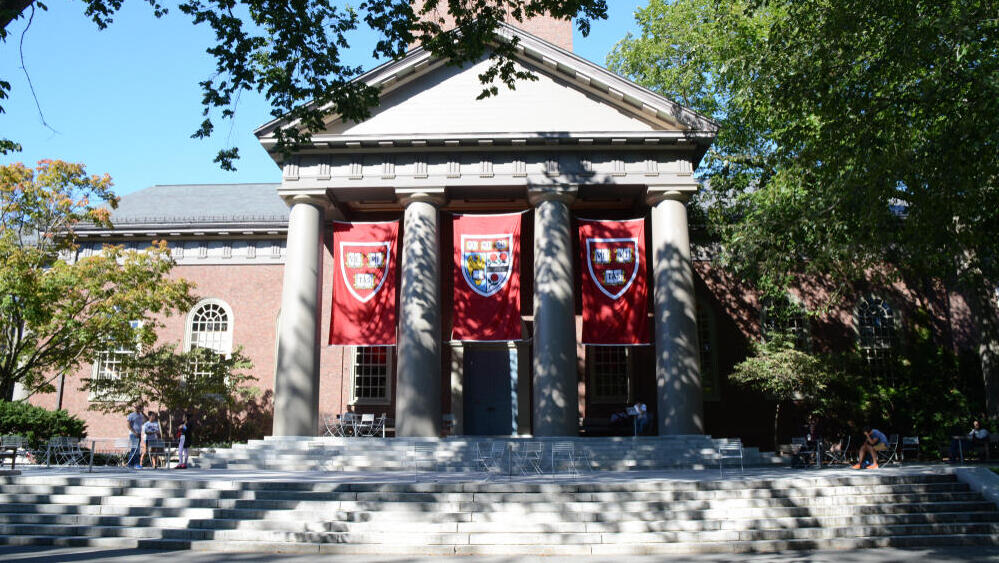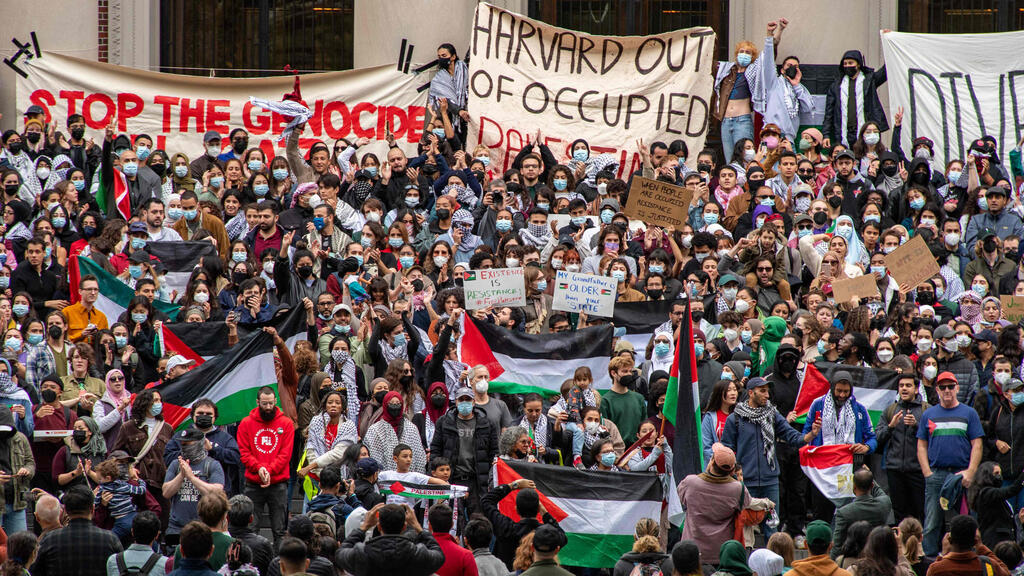Getting your Trinity Audio player ready...
Adam Cines, a former Harvard fundraiser, recently made the bold decision to step away from his role, citing discomfort with the university’s response to rising tensions on campus following the October 7 terror attack on Israel. In a candid interview, Cines shared his experience and insights on the challenges Jewish individuals face today in academia.
“I’d like to say I didn’t experience any direct antisemitism from the people I worked with,” Cines said. “But the overall environment was one I just did not feel comfortable working in, especially fundraising.”
Adam Cines interview
(Video: Miki Schmidt)
Cines joined Harvard’s gift planning team, assisting donors in including the university in their wills. Yet, after October 7, he was inundated with calls from donors expressing disappointment with Harvard’s muted response to the attacks.
“Many donors said the Harvard they attended as students would never release such a tepid statement,” he explained. “Nor would it tolerate a student organization immediately justifying terrorist actions after such an event.”
Get the Ynetnews app on your smartphone: Google Play: https://bit.ly/4eJ37pE | Apple App Store: https://bit.ly/3ZL7iNv
Compounding his discomfort was the presence of encampments in Harvard Yard, where individuals wore keffiyehs and voiced support for actions Cines found deeply troubling. “It wasn’t an environment I could continue fundraising for,” he said.
Muted responses and missed opportunities
When asked how his concerns were addressed by colleagues and the administration, Cines noted the lack of concrete action.
“After October 7, we received no real guidance. There was a Zoom meeting for staff in development to share concerns, but it was more of an open mic,” Cines recalled. “People would say they didn’t like how Harvard responded, and others would reply, ‘Thank you for sharing.’ That was the extent of it.”
Cines also described receiving an email from the Harvard Union, which he and others were required to join, inviting support for a pro-Palestinian rally. “It felt absurd,” he said. “Being nudged toward a rally while working for the university was unsettling.”
He expressed frustration with Harvard’s hesitance to take a definitive stand. “Harvard’s too smart to say anything outright antisemitic, but they also don’t want to upset students supporting a terrorist organization. So, they say nothing, which, in itself, is absurd,” Cines said.
He referenced the dean’s recent testimony before Congress, where she labeled the chant “from the river to the sea” as “contextual.” Cines found the response emblematic of the administration’s fear of saying the wrong thing.
A growing challenge for Jews in academia
Cines believes the current academic landscape in the U.S. has become increasingly unwelcoming for Jewish students and professionals.
“It’s been a slow process,” he said. “Over the last 20 or 30 years, institutions have admitted more individuals with insidious ideologies, and it’s grown over time. Now, there are professors supporting terrorist organizations and teaching students false narratives.”
The result, he argues, is a cycle where students absorb harmful ideologies like settler colonialism. “Forty years ago, donors tell me, people at Harvard would never feel comfortable supporting such ideas. Now, it’s a difficult narrative to challenge.”
Since leaving his role, Cines has pursued an MBA through the University of Maryland while traveling globally. He spent part of those travels strengthening his Jewish learning at Aish in Jerusalem and volunteering in Israel, all of which were decisions that he says have offered valuable perspective.
“I didn’t want to stay in the U.S.,” he admitted. “The University of Maryland has a vibrant Jewish community, and it’s a pro-Jewish university where I got my undergraduate degree. But traveling – through 14 countries, including Turkey and Morocco – has been eye-opening.”
While the journey has offered insight, Cines’ decision to leave the U.S. reflects what he sees as a growing issue in American academia.
“It’s a problematic headline, to say the least,” he concluded.






